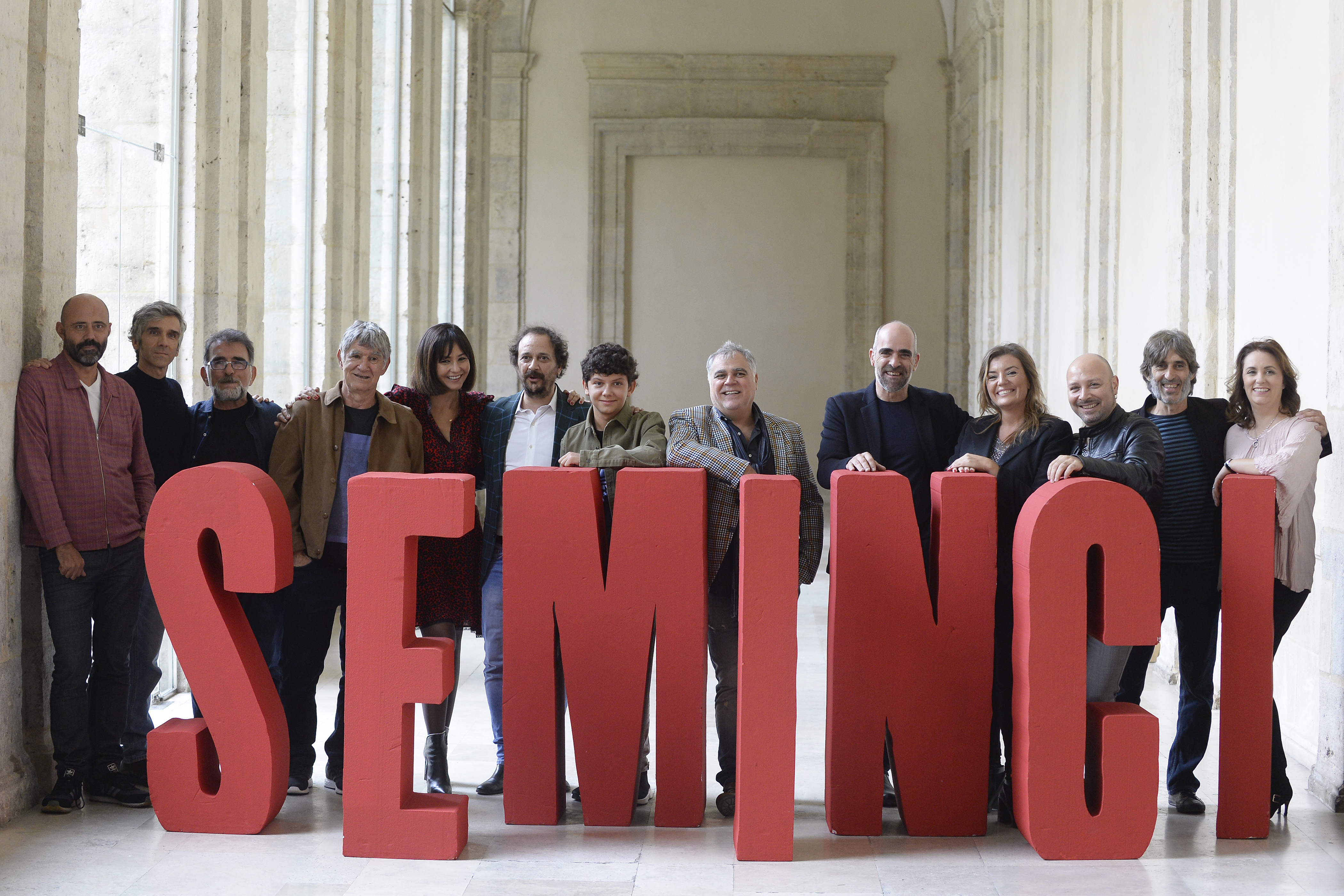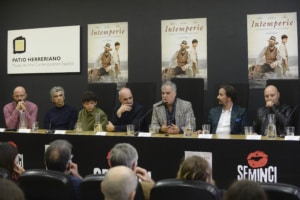
10/19/2019.-Benito Zambrano’s followers know that he is not a director interested in pure entertainment. True enough, he wants the viewer to have a good time, but his movies pursue other goals. Embarking on a film project based on a book like Intemperie is already a declaration of intent from the very start. Those who have read the first novel by Jesús Carrasco know that it is not an easy text to digest, and the film’s scriptwriters Daniel and Pablo Remón chose not to soften things for the big screen.
This became quite clear during the press conference that followed the screening of the film for accredited professionals joined by the film’s director himself, cast members Luis Tosar (the goatherd), Jaime López (the child), Luis Callejo (the sheriff/foreman) and Vicente Romero (the sheriff’s right-hand), and producers Juan Gordon and Pedro Uriol.
The latter explained how they managed to get the rights to shoot Out in the Open, the story of a child who flees from his abuser through a desert territory, and on his flight finds the friendship and help of a goatherd: «The book’s adaptation rights were highly sought-after by production companies, so we decided to explain to Jesus Carrasco how we wanted to do the project. He, in turn, wanted to be fully assured about who was in charge of the screen adaptation and conveyed to us that the film should be an independent project and that he wouldn’t be reading the successive rewritings of the script. He read the final version and was satisfied».
Benito Zambrano received the fully adapted script from the producers so that he could concentrate on his approach to the film shot. «I immediately connected with the proposal, to begin with because it could be safely shot in the Andalusian countryside and its farmhouses, a setting I am really familiar with since my childhood. When I read the script, I knew that I could turn it into a story that was close to me ».
For the producers and the film’s director, the story of Out in the Open is relatively simple. According to Juan Gordon, «the novel contains elements that would enthuse any producer: a man defeated by his environment and his year-long estrangement from society and, on the other hand, a child who is running away and needs help». Zambrano, in turn, describes the story as «a combat between good and evil».
The good, the evil and the miserable

The film makes it clear which category each character belongs to. There are those who suffer abuses and those who inflict them on others. Luis Callejo, the heinous foreman who relentlessly pursues the run-away child, was explicit enough: «Beneath my character’s sobriety I had a lot of fun playing the role, but I could find no source of inspiration, because I have never in my life met such a son-of-a-bitch! ». Luis Tosar, the good-natured goatherd, explained how the kid (Jaime López) helps him maintain his hope in the human condition: «The film is about fighting against hatred, and when the boy and my character cross their paths, it’s like the last ray of light in the herdsman’s life».
Eventually the boy moves from childhood to adulthood in the course of his escape, and in doing so he learns the values that will guide his life from his rough mentor. «You have too much life ahead of you to hate yourself» is one of the laconic sentences that the goatheard uses to bring out the best of the boy: the kind of statement which, according to Zambrano, «we tend to believe when we hear it in American movies, while in Spanish films typically seems to be out of place; this is why you need an actor like Tosar to make it credible so that you can meet the challenge. There are several such sentences in the novel, but in a movie you can´t afford to use too many words: a film is not a 200-page book and you must rely on the characters’ eyes and voices ».



























![Logo Foro Cultural de Austria Madrid[1]](https://www.seminci.com/wp-content/uploads/2024/09/Logo-Foro-Cultural-de-Austria-Madrid1-300x76.jpg)








